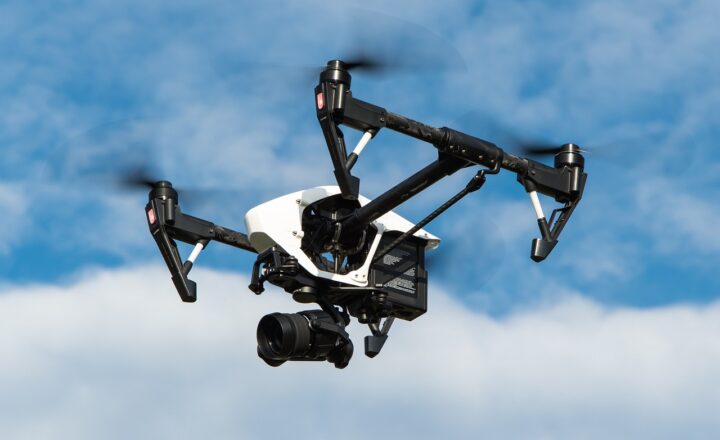The Rise of Drones in Warfare and the New Ethical Questions They Raise
November 11, 2024

Drones, or unmanned aerial vehicles (UAVs), have rapidly transformed modern warfare. What began as a tool for surveillance has evolved into a formidable weapon system, capable of conducting precision strikes without risking the lives of military personnel. However, this advancement raises significant ethical questions that society must grapple with.
1. The Evolution of Drone Technology
The use of drones in military operations can be traced back to their early development in the mid-20th century. Initially, they served limited roles, primarily focused on reconnaissance and surveillance. However, significant advancements in technology, including improved sensors, AI capabilities, and real-time data transmission, have allowed drones to engage in combat missions.
One of the earliest instances of armed drones was during the Gulf War in the 1990s, where UAVs equipped with missiles were employed. Since then, military organizations around the world, particularly the U.S. Department of Defense, have increasingly relied on drone technology for various operations, most notably in regions like Iraq and Afghanistan.
As the capabilities of drones expand, the line between surveillance and direct engagement has blurred, with sophisticated drones such as the MQ-9 Reaper taking center stage. These advanced platforms can conduct targeted strikes with minimal collateral damage, raising questions about the morality and legality of their use.
2. Precision and Civilian Casualties
Proponents of drone warfare often tout the technology as a means to achieve military objectives while minimizing risks to military personnel. However, the very notion of precision strikes often leads to tragic miscalculations.
Reports indicate that drone strikes in conflict zones have resulted in civilian casualties, sometimes due to intelligence failures or operational mistakes. This situation raises critical ethical questions:
- Accountability: Who is responsible when a drone strike goes awry, leading to the loss of innocent life? The operators, the chain of command, or the technology itself?
- Just War Theory: Does drone warfare adhere to the principles of just war theory, which emphasizes the moral justification for entering war and the conduct within it?
- Transparency: The secretive nature of drone operations often leaves the public in the dark. Should governments be more transparent about their drone programs and their impact?
As nations improve their drone capabilities, these issues become all the more pressing.
3. Psychological Warfare and the Distant Combatant
The removal of soldiers from direct combat zones places an emotional and psychological barrier between military operations and the everyday lives of citizens. Drones enable military personnel to conduct operations from thousands of miles away, often leading to a detachment from the consequences of their actions.
This distance can desensitize operators, potentially reducing the perceived gravity of their actions. Studies suggest that the psychological impact of drone warfare can lead to feelings of invulnerability among operators, complicating the ethical considerations of their use. They may perceive drone strikes as video games rather than life-and-death scenarios, which can alter decisions regarding engagement rules and target selections.
Furthermore, the fear induced by drone strikes in specific regions can have long-lasting psychological effects on the civilian population. It instills an atmosphere of constant surveillance, where inhabitants live with the knowledge that they are being watched and could be targeted at any moment, potentially curbing their freedoms and way of life.
4. The Global Arms Race: Drones in the Hands of All
As drone technology becomes increasingly accessible, the prospect of their use in conflict zones is no longer confined to powerful nations. Non-state actors, including terrorists and insurgent groups, have begun employing drones for surveillance and attack purposes. This democratization of drone technology raises alarm about the future of warfare.
The proliferation of drone technology among nations and non-state actors presents risks, including:
- Escalation of Conflict: With more entities able to deploy drones, smaller conflicts can escalate quickly into larger military engagements, making international diplomacy more challenging.
- Terrorism: Drones used for terrorist purposes can be highly lethal in urban environments, threatening civilian populations and critical infrastructures.
- Ethical Implications: The sale of military-grade drones raises ethical questions about foreign policy and the accountability of arms suppliers involved in such transactions.
As drone technology continues to evolve, all nations must confront the implications of its burgeoning availability and address the ethical responsibilities tied to their development and use.
5. Legal Frameworks and the Need for Regulation
The current legal frameworks surrounding drone warfare are ambiguous and often lag behind technological advancements. Issues arise from the lack of clear regulations governing the use of drones in conflict, making it essential to establish comprehensive international laws to manage their deployment.
- International Humanitarian Law: How do drones operate within the boundaries of established humanitarian laws, which demand the protection of non-combatants during armed conflict?
- Sovereignty Issues: Drones operating in foreign airspace can violate a nation’s sovereignty. How can nations agree on acceptable rules of engagement?
- Establishing Accountability: What measures can organizations put in place to hold countries accountable for indiscriminate drone use?
There is a growing consensus among legal scholars, ethicists, and political leaders on the necessity of developing robust legal frameworks for the use of drones in warfare that comply with international laws and prioritize accountability.
Conclusion: Balancing Ethics and Technology
This analysis exposes the multifaceted ethical dilemmas posed by the rise of drones in warfare. While their advantages cannot be ignored—such as reducing military casualties and providing new tactical advantages—the impact on civilian lives, psychological consequences, and the broader implications for international conflict require rigorous scrutiny.
As drone technology continues to evolve, it is critical for governments, military leaders, and societies to engage in an ongoing dialogue about the ethical ramifications of their use. By balancing technological advancements with ethical considerations, a path forward can be identified that respects both the imperative of national security and the sanctity of human life. The future relationship between warfare and drones will depend on how we address these questions today.







